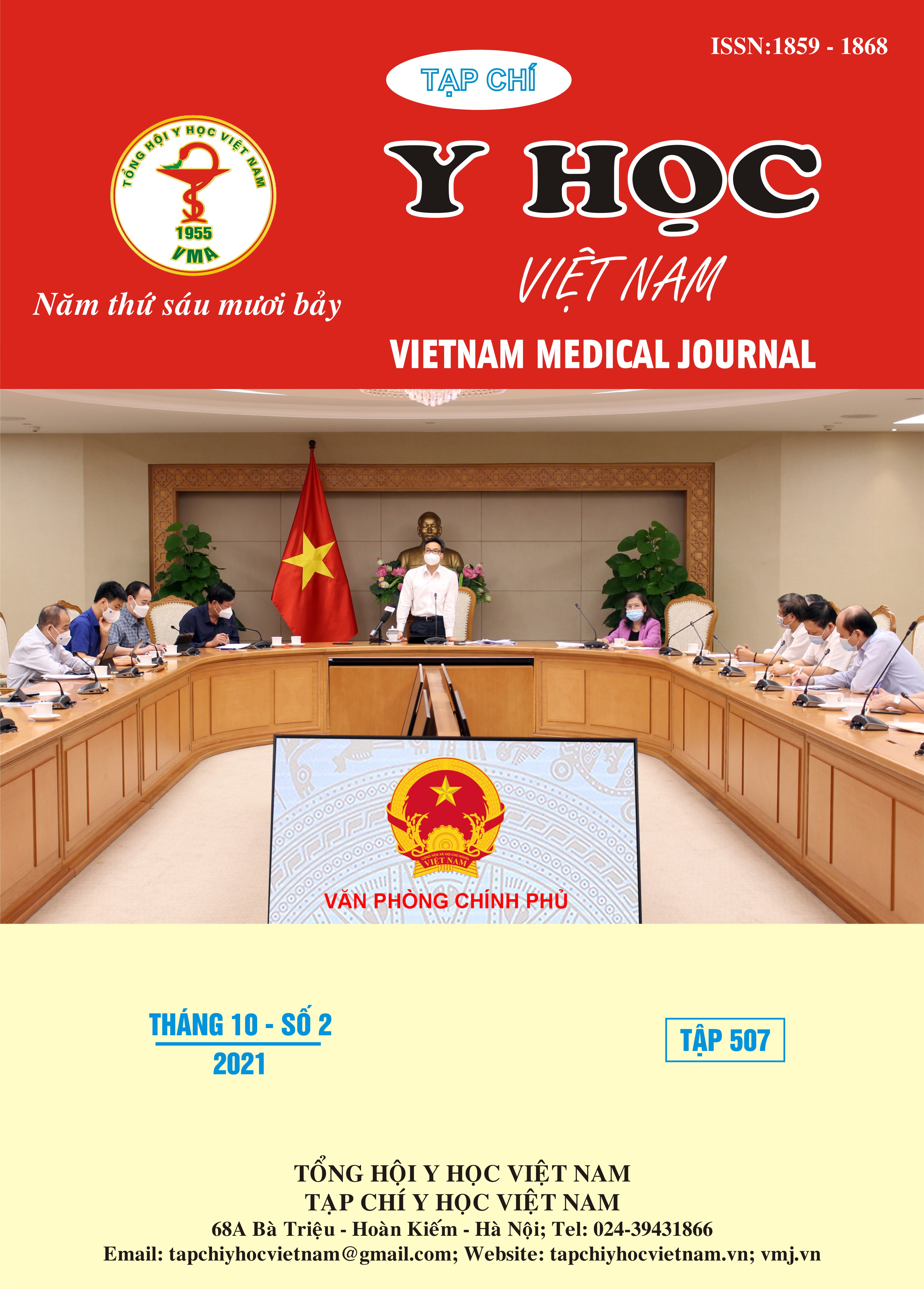CHARACTERISTICS IMPAIRMENT MEMORY OF MATURE EPILEPSY PATIENTS AT BACH MAI HOSPITAL
Main Article Content
Abstract
Epilepsy leads to seizures and can impair advanced brain functions including memory function. This leads to a decrease in the quality of life for epilepsy patients. Objective: Describe clinical features of impaired memory function in mature epilepsy patients. Subjects and methods: Cross-sectional descriptive study on 144 patients diagnosed with epilepsy according to the International League Against Epilepsy (International League Against Epilepsy) criteria at Bach Mai hospital from July 2020 to July 2021. Results: There were 78 male patients and 66 female patients with an average age of 44,2 ± 9,1. The age of first seizure onset was most common in the group under 18 years of age, after 60 years of age, the rate of first seizure appearedalso tends to increase.In this study, patients had the most simple partial seizures (38,9%), the number of patients with complex partial seizures was the least (11,1%). The proportion of epilepsy patients with memory impairment was 34,0%, of which men accounted for 33,3%, women accounted for 34,8%, there was no difference in the rate of memory impairment in the two sexes. . Patients with a frequency of thick seizures have memory impairment rate of 58,3%, patients with disease lasting more than 5 years, the rate of memory loss is 55,8%. Conclusions:In our study, epilepsy patients had a relatively high rate of memory impairment, accounting for 34,0%. The longer the patient has a disease, the higher the frequency of seizures, the higher the rate of memory loss, so there is a need for more active treatment intervention in this group.
Article Details
Keywords
Epilepsy, seizure, memory function
References
2. Fisher R.S., Acevedo C., Arzimanoglou A. và cộng sự. (2014). ILAE official report: a practical clinical definition of epilepsy. Epilepsia, 55(4), 475–482.
3. Lê Thế Phi (2018), Đánh giá ảnh hưởng của thuốc phenobarbital lên chức năng nhận thức trên bệnh nhân trưởng thành mắc động kinh cơn lớn. Luận văn Thạc sĩ Y học, Trường Đại học Y Hà Nội.
4. Hồ Anh Thủy (2011), Nghiên cứu một số đặc điểm về rối loạn nhận thức trên bệnh nhân động kinh người trưởng thành được điều trị bằng phenobarbital. Luận văn tốt nghiệp Bác sỹ chuyên khoa cấp II, Trường Đại học Y Hà Nội, Hà Nội.
5. Beghi E. (2020). The Epidemiology of Epilepsy. NED, 54(2), 185–191.
6. Kotsopoulos I., de Krom M., Kessels F. và cộng sự. (2005). Incidence of epilepsy and predictive factors of epileptic and non-epileptic seizures. Seizure, 14(3), 175–182.
7. Marques C.M., Caboclo L.O.S.F., da Silva T.I. và cộng sự. (2007). Cognitive decline in temporal lobe epilepsy due to unilateral hippocampal sclerosis. Epilepsy Behav, 10(3), 477–485.
8. Wang L., Chen S., Liu C. và cộng sự. (2019). Factors for cognitive impairment in adult epileptic patients. Brain Behav, 10(1), e01475.
9. Kent G.P., Schefft B.K., Howe S.R. và cộng sự. (2006). The effects of duration of intractable epilepsy on memory function. Epilepsy Behav, 9(3), 469–477.


